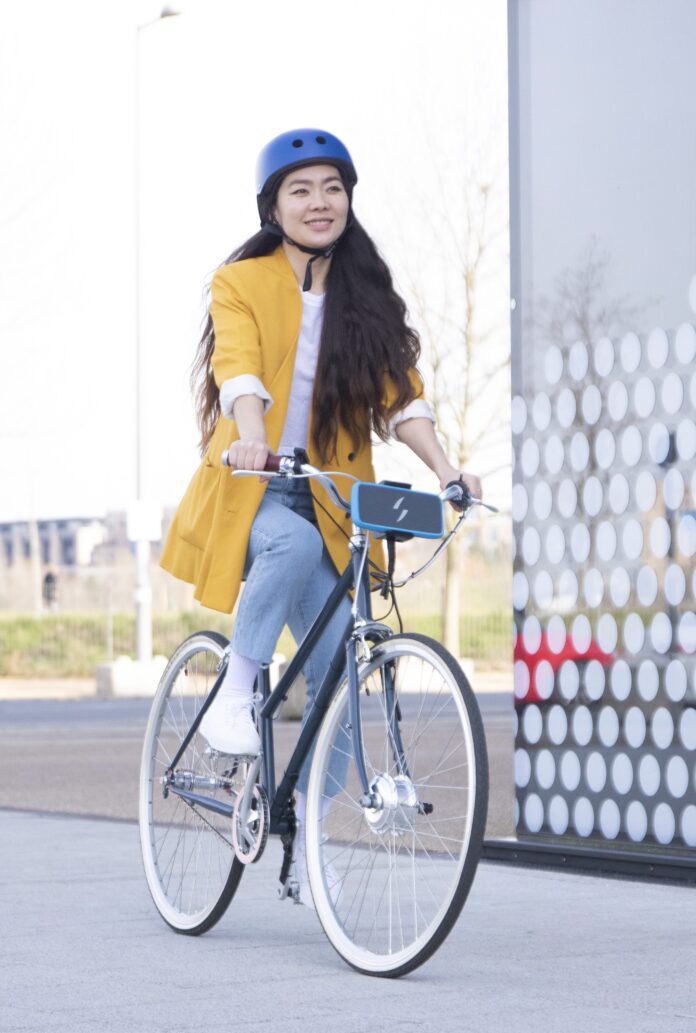From four wheels to two: The rise of the ‘active commute’
Landmark study unveils the mental health cost of our commutes, with 1-in-5 Britons pinning their commutes as one of the largest strains to their wellbeing
– 37% of Brits avoid jobs where majority office working is a requirement because they hate commuting into the city
– 48% of Brits say their mental health has dramatically improved since they started cycling or walking for a regular period of time
– 24% of Brits say that travelling to the closest train/tube station takes up nearly half of their commuting time
– 18% of Brits say that by the time they get into work they are so exhausted from their commute that it affects their productivity
Research has found that millions of commuters across the country walk the equivalent of a marathon every fortnight, with one-in-nine workers – around 3.5 million people – now walking around 2.6 miles daily. As firms incentivise employees to return to the office, commuting has come back onto the national agenda – with the volume of commuting reaching pre-pandemic levels. Yet, one form of travel that has skyrocketed over the past few years is ‘active commuting’ – which encapsulates walking and cycling, as opposed to cars and public transport. With studies showing that walking has increased by 22% post-pandemic, it is clear that Britons are looking to re-frame their journey to work. Further evidenced by data from leading e-bike engineers, Swytch Technology, which states that 1-in-5 Brits pin their commutes as one of the largest strains to their wellbeing – workers across the nation have reached a boiling point, ushering in the age of the ‘active commuter’.
Britain inhabits a car culture – with studies finding that although a significant number of people would happily cycle for shorter trips, a lack of safe local infrastructure for cycling puts them off. With research from Swytch unveiling that 18% of Brits find the strain of their commute affecting their productivity at work, it should be a call to action for not only workers to reclaim their commutes, but for councils to ensure that proper infrastructure is put in place so we can get the most out of our travel.
The case for ‘pedestrianisation’ can be seen in recent initiatives such as the ’15-minute city’ or the government’s recent £32.9m fund for more walking and cycling lanes. Yet, whilst these schemes are promising, one way that Brits can begin to incorporate more active travel into their commute is by adopting accessible forms of sustainable travel, such as the e-bike. Having seen a rise in popularity in recent years, electric-assist bikes, or e-bikes, have become popular replacements for cars in some households, giving way to a less strenuous form of cycling whilst allowing users to burn almost the same amount of calories as they would through traditional cycling – serving as the answer to our commuting woes.
Key Stats:
– 37% of Brits avoid jobs where majority office working is a requirement because they hate commuting into the city
– 48% of Brits say their mental health has dramatically improved since they started cycling or walking for a regular period of time
– 24% of Brits say that travelling to the closest train/tube station takes up nearly half of their commuting time
– 18% of Brits say that by the time they get into work they are so exhausted from their commute that it affects their productivity
For those that make the transition to active commuting, research suggests the physical and mental health benefits are enormous. Statistics Canada has found that 66% of people who cycle or walk to work are ‘very satisfied’ with their commutes, compared to 32% who commute by car and the 25% who commute by public transit. To further this, Swytch study found that 48% of Brits say that their mental health has dramatically improved since they started cycling or walking.
With Swytch’s proprietary research finding that over 13 million Brits have a bike that is rusting in storage, the solution to Britain’s commuting woes could be lying dormant in garages across the nation. The Swytch Kit allows you to convert any bike into an e-bike with a small battery-sized device that costs £500 – allowing users to save around £1,500 in annual commuting costs in London.
Oliver Montague, CEO of Swytch Technology, comments on the benefits of cycling to reduce commuting stress:
“The impact commuting is having on our mental health is worrying. Over the past year we’ve had stressors on our journeys such as rail strikes, and most recently – a hike in TfL prices amidst a historic cost-of-living crisis, which have fuelled our apprehension towards public transport. Now, as workers are being incentivised to return to the office, our data reveals a shift in the way people perceive commuting and the need for Brits to adapt alternative modes of commuting such as cycling.
“It’s important to realise that cycling is not only reserved for the fit and active few that live close to their offices – with e-bikes making cycling a less strenuous activity, riding to work can become a breezy and enjoyable part of your day and accessible to all. Not only is this a cost-effective way to travel, but our research has further emphasised the mental health benefits of transitioning to an active commute.”
Help keep news FREE for our readers
Supporting your local community newspaper/online news outlet is crucial now more than ever. If you believe in independent journalism, then consider making a valuable contribution by making a one-time or monthly donation. We operate in rural areas where providing unbiased news can be challenging. Read More About Supporting The West Wales Chronicle

























